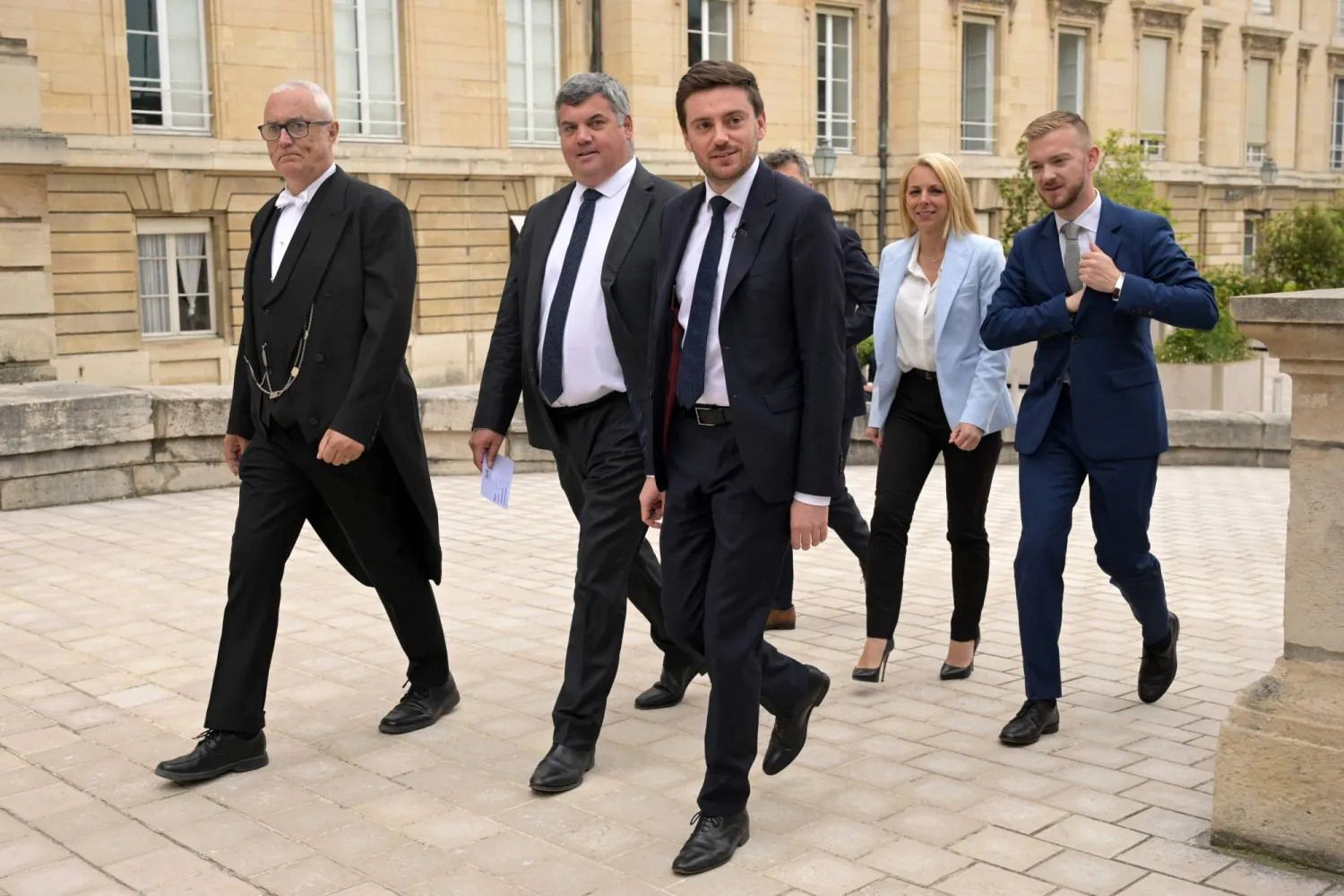Opponents of France's National Rally (RN) stepped up their bid to block the far-right party from power on Tuesday as more candidates said they would bow out of this weekend's run-off election to avoid splitting the anti-RN vote.
Some 180-plus candidates have confirmed they will not stand in Sunday's second-round for France's 577-seat national parliament, according to local media estimates. Others have until 6 p.m. (1600 GMT) to make their choice.
Marine Le Pen's RN came out well ahead in Sunday's first-round vote after President Emmanuel Macron's gamble on a snap election backfired, leaving his centrist camp in a lowly third place behind a hastily formed left-wing alliance.
But even before the maneuvering of the last 24 hours to create a "republican front" to block the anti-immigrant, Eurosceptic party, it was far from clear the RN could win the 289 seats needed for a majority.
Pollsters calculated the first round put the RN on track for anything between 250-300 seats. But that was before the tactical withdrawals and cross-party calls for voters to back whichever candidate was best placed to defeat the local RN rival, Reuters reported.
"The match is not over," the Socialist mayor of Paris, Anne Hidalgo, told France 2. "We must mobilize all our forces."
The RN is hostile to further European Union integration and would cut funding to the EU. Human rights groups have raised concerns about how its "France first" and anti-migrant policies would apply to ethnic minorities, while economists question whether its hefty spending plans are fully funded.









